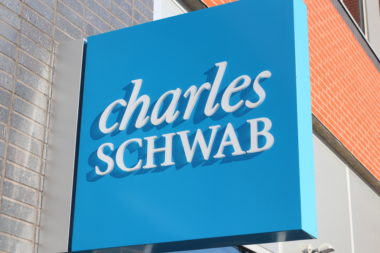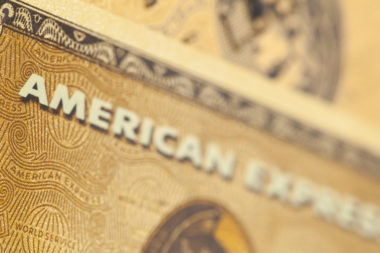For many people, choosing a bank comes down to whatever is closest to their home or work. An increasing number of individuals are spreading out their banking, though, opening more than one account at different banks. Although there are some challenges that can come with maintaining multiple bank accounts, it’s a completely acceptable way to both protect your money and make the most of it.
Table of Contents
Why Do People Have Multiple Accounts?
Opening multiple bank accounts can be beneficial for a number of reasons. One increasingly common reason is security. In the event that one account is compromised, having a backup account allows you to access funds while the investigation is underway. If you need to wait a few days for a new debit card, a second account ensures you have cash when you need it.
There are also several long-term, financial management reasons to open multiple accounts. These include:
- Taking advantage of bonuses: Many banks offer generous bonuses to new customers, in some cases up to $500. If you can meet the criteria, opening a new account can mean “free money” to build your nest egg.
- Increased protection: The FDIC only insures consumer deposits up to $250,000 per account. If you have assets in excess of that amount, spreading them among multiple accounts ensures you’re covered if something happens to the bank.
- More transactions: By law, banks can only allow customers to make up to six withdrawals from a savings account each month. With more than one savings account, you can make more withdrawals if needed.
- Earning more interest: Many online-only banks offer higher interest rates than local banks and credit unions.
- Managing spending: Opening multiple accounts can help you manage your spending. For example, many couples have a joint checking or savings account for household expenses as well as individual checking accounts for personal spending. If you run a home-based business or freelance regularly, you might also have separate accounts to keep those earnings and expenses separate, simplifying things come tax time.
Is It Bad to Have Multiple Accounts?
In general, it’s not a bad thing to have multiple bank accounts, and there are actually some benefits to doing so. However, as with anything, not managing your accounts properly can have a negative effect on your finances.
Although banks don’t typically report your accounts to the credit bureaus unless they are sent to collections (which typically only happens if the account remains overdrawn for an excessive amount of time), they may report activity to ChexSystems, a consumer reporting agency.
Banks report negative information to ChexSystems; for example, if you have a pattern of bouncing checks, that’s likely to show up in your report. Your report will also indicate whether you have a pattern of opening and closing accounts and any accounts that were closed by the bank. The information is used by banks to gauge the risk of allowing you to open a new account.
Opening multiple accounts at different banks does not necessarily mean that your ChexSystems report will be negative. If your accounts are in good standing, then you won’t have any trouble. If you have opened several accounts in a short period, though, that can be a red flag to a bank. This is often a sign that someone is opening accounts only to collect an opening bonus, not to develop a relationship with the bank, especially if they close the account within a few months.
The effect on your ChexSystems report isn’t the only concern about opening multiple accounts. Maintaining multiple accounts can be challenging, especially if you are trying to avoid monthly fees.
Because many banks charge fees when you fail to meet certain criteria, such as a minimum balance or minimum direct deposit, spreading your money out among different accounts could make fee avoidance more challenging. Paying steep account fees cuts into your available funds and your savings, so multiple accounts is only a good idea if you can comfortably manage them.
Opening multiple accounts can also reduce your interest earnings. Banks compound interest, so the higher your balance, the more you can earn. When your money is spread out, your total earnings may be reduced because the balances aren’t as high.
Is Having Multiple Bank Accounts With Different Banks Bad?
Although some people think that opening accounts with different banks is bad, it really isn’t. Maintaining accounts for several years with a single bank allows you to build a relationship with that bank, and possibly take advantage of relationship perks like higher interest rates or lower fees. That doesn’t mean you can’t explore your options with additional banks, though.
Opening several accounts with different banks can be beneficial. Again, you may be able to take advantage of multiple account bonuses and higher interest rates. Opening a new account might also be beneficial when taking out a loan. Many banks offer lower interest rates on home or car loans when you have an account, and make direct payments.
How Many Bank Accounts Can I Have?
Legally, there’s no limit to how many bank accounts one person can have. That said, some banks do have a limit on the number of accounts any individual can open. You’ll need to check with the individual bank to learn their policies.
How Many Bank Accounts Should I Have?
On average, Americans have 5.3 bank accounts each, including checking, savings, and other accounts, such as money markets. Most financial experts, though, recommend keeping your banking as simple as possible, which typically means a checking and savings account at one bank, with a second savings account at the same or a different bank dedicated to a specific purpose.
For example, you might want to open a high-yield savings account with an online bank to put money away for a home or a vacation. No matter how many accounts you have, though, managing them responsibly and staying on top of your finances is the key to making the most of them and avoiding unnecessary fees and charges.
Image Source: https://depositphotos.com/





